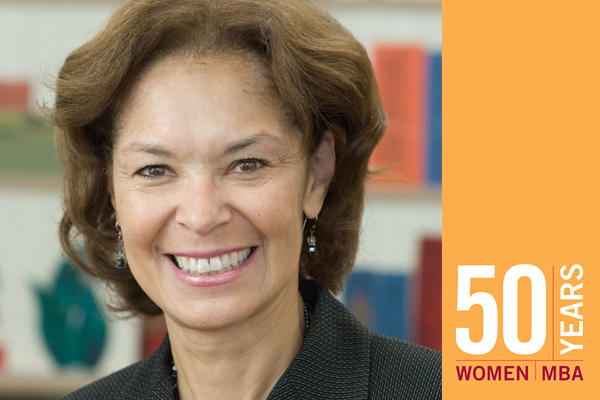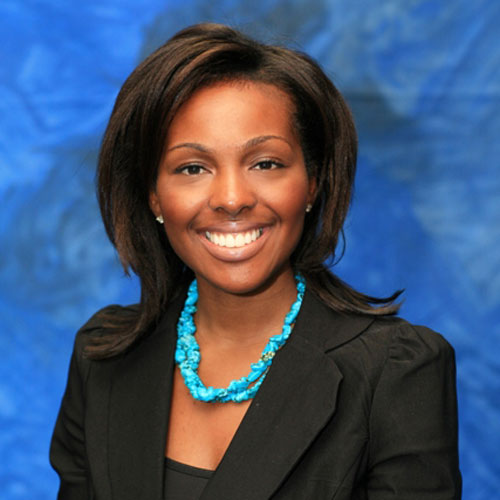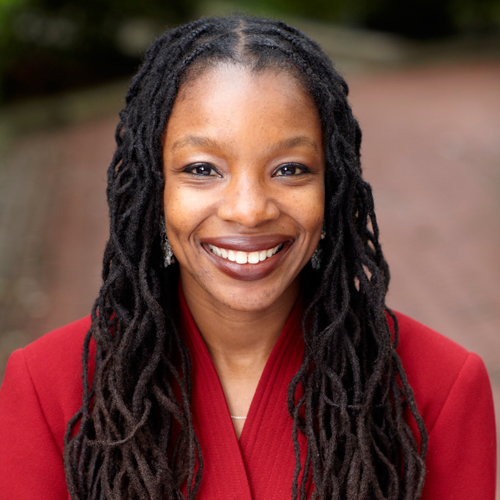
Cheryl Howard
Biography
Cheryl E. Howard, Vice President of Marketing & Admission, Simmons College, leads university-wide marketing efforts to raise brand awareness, competitively position the College, and recruit and deliver new students for all undergraduate and graduate programs. Howard, a Simmons College undergraduate alumna, joined Simmons in September 2007 with 19 years in marketing and brand management experience at The Gillette Company and four years of marketing and customer relationship experience at Digital Equipment Company.
How did being black and a woman shape your experience at HBS and thereafter?
For as long as I can remember, being black and a woman has shaped my experiences. I grew up in Washington, D.C. In 1964, five of us—two black teen girls and three black teen boys—were the first high school students to integrate Sidwell Friends School. We arrived on the campus of the exclusive, white, Quaker private school (which educated Chelsea Clinton, and now the Obama girls) with full scholarships. Three of us graduated with honors, including me, because we were academically prepared by the (largely black) D.C. public schools. Often, we found ourselves asked to explain to white students and staff how "black people feel." From these requests, I learned to listen carefully; not to jump to conclusions about seemingly racial comments; to tease out people's assumptions, and to never, ever try to speak for the entire black race. I loved my three years at Sidwell Friends and return often for reunions.
I travelled to Boston in 1967 to attend Simmons College, an all-women's (and virtually all-white) college, to pursue a business administration major. At Simmons, we learned to find our voice as women and to develop leadership skills in an environment that was completely supportive of our femininity. The Black Student Organization was founded during my time there, and it enabled the perfect marriage of being black, a woman, and a leader, as we learned to create change. At the same time, my favorite Simmons professor, Margaret Hennig, who was a doctoral student at HBS, told me to "go where the men go" for additional business education, e.g., HBS. Hennig offered to guide me in applying and to write a recommendation. I was accepted.
When I arrived at HBS in 1972, I thought being black and a woman would be manageable. I was wrong. For the first time, I was in a virtually all-white, male environment with people who had years of business experience compared to my 18 months at the Boston Federal Reserve Bank. I did not live on campus, and I had a toddler and husband. Nearly every aspect of the HBS experience was male dominated—class discussions, the case protagonists, male faculty, study groups, and no easily accessible ladies room. It took all my courage to contribute in class, and I felt great pressure to complete exams at the highest level to compensate for "less successful air time." I learned to be resilient, to ask for technical help, to appreciate support, and to never, ever try to speak for all women.
My experience at Sidwell Friends and Simmons, a few wonderful HBS classmates (white, black, male and female), and working very hard enabled me to survive the MBA program and, then, the DBA program, where I was the only black woman. Even on difficult days, I knew I was growing and developing traits that would be critically important to my future. I did not love it, but I certainly valued my time at HBS.
After such challenging experiences, being black and a woman at the Gillette Company and Digital Equipment Company was never an issue—the HBS credential seemed to trump any differences.
What advice would you give to young black women who will attend HBS in the future?
Attending HBS is truly a once-in-a-lifetime experience. Take full advantage of everything it offers. If you have been admitted, you are academically prepared; you can succeed, no matter how challenging the material and how tough the demands. You were admitted because you have demonstrated real leadership skills, great accomplishments, and enormous potential. There is no question that black women deserve to have seats at HBS.
You must have no doubt, ever, in your ability to succeed, but you must work very hard every day. Much is expected of black women at HBS because we have been so successful over the past decades. I believe little was expected of black women in the early '70s because we were rare in number, and while physically obvious, quite "invisible."
The MBA program today is so different from the one I experienced—diversity is everywhere, with so many international students from around the world and representation of women nearly equal to men.
Frankly, the experience I had at HBS is irrelevant to young black women of today. Even so, I think some of the lessons I learned from my experience can be of help. Confidence, resilience, the willingness to ask for technical help, and finding the right HBS friends of any color or gender to support you in the experience will make all the difference in getting through HBS and creating excitement about returning for reunions.
What impact did HBS have on your life and the life of others?
After 25 years in corporate positions in Boston, I returned, full-circle, to Simmons College as VP Marketing & Enrollment, reporting to the President. My admissions team works with hundreds of young women, many of whom are first generation, who have applied to Simmons. I know the young women we admit will have a transformative experience that will change their lives and the lives of their families. They will be educated in the proud tradition of a women's college, find their voice, and develop their leadership style so they can change their communities and the world.
Colleges and universities are experiencing incredible upheaval as the business model for higher education changes due to shifting demographics, new technologies, federal legislation, analyst ratings, an anemic economy, and downward economic pressures on families. Now it takes the skills learned at HBS and in corporate settings to successfully run higher education organizations in the 21st century. I could not be happier or more proud to make a real difference in the lives of hundreds of young women as well as in the operations of Simmons College, because it made such a difference in my life.

